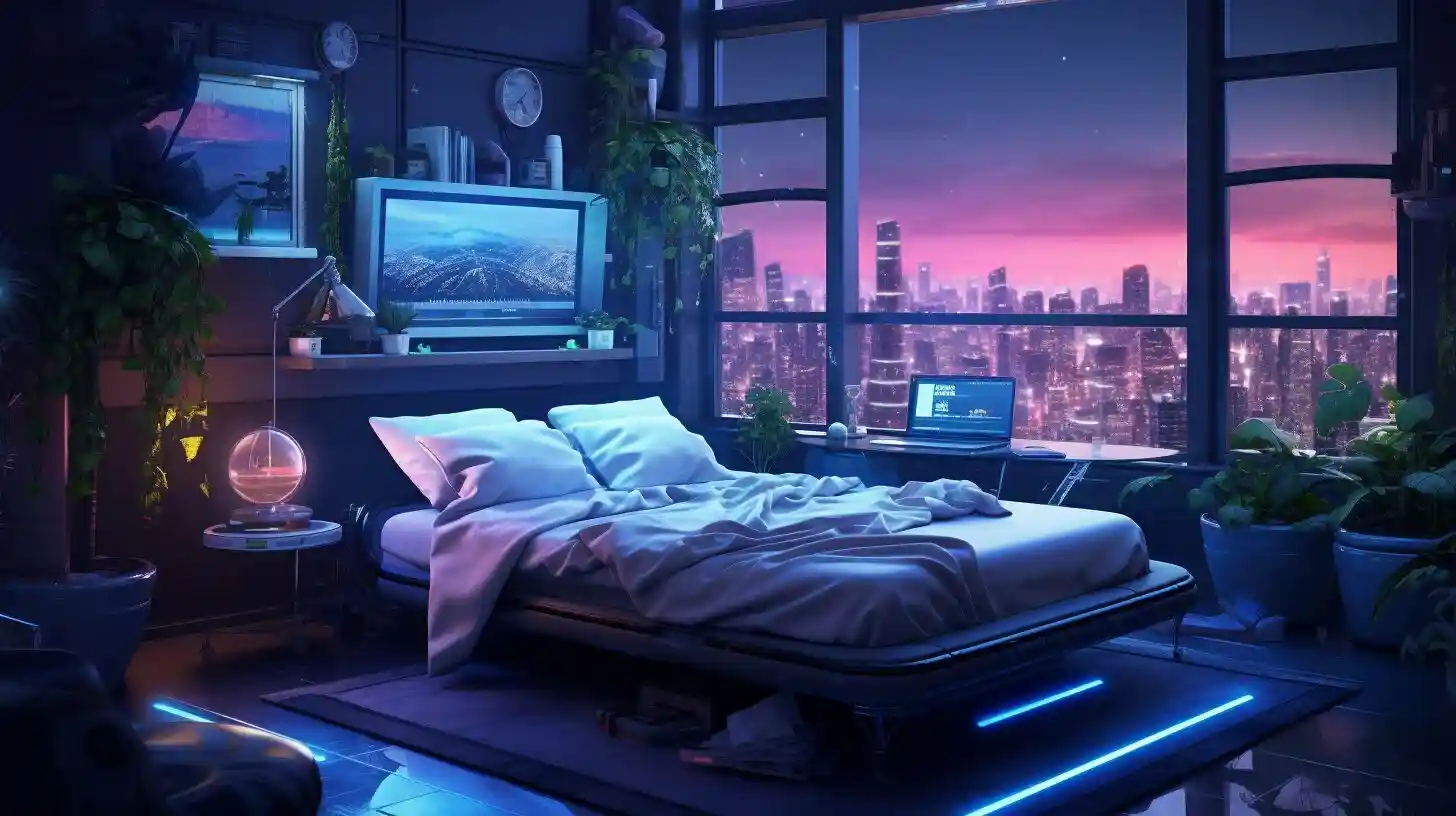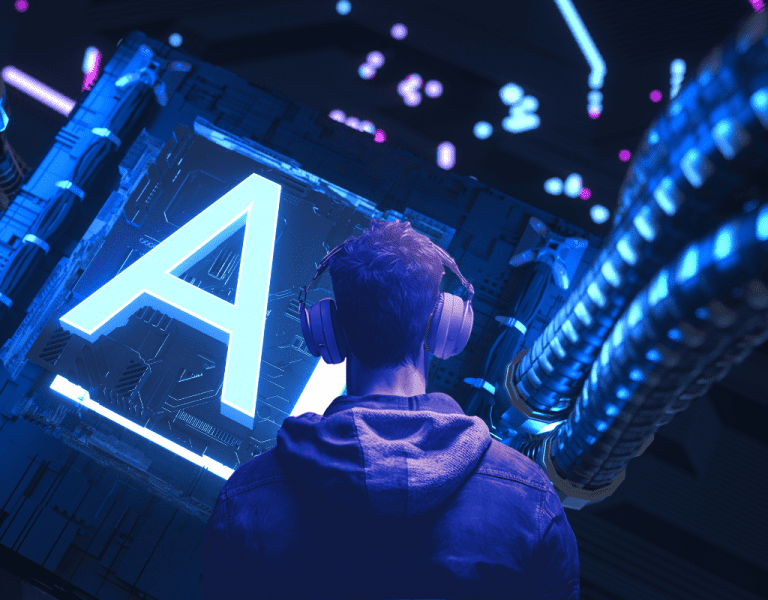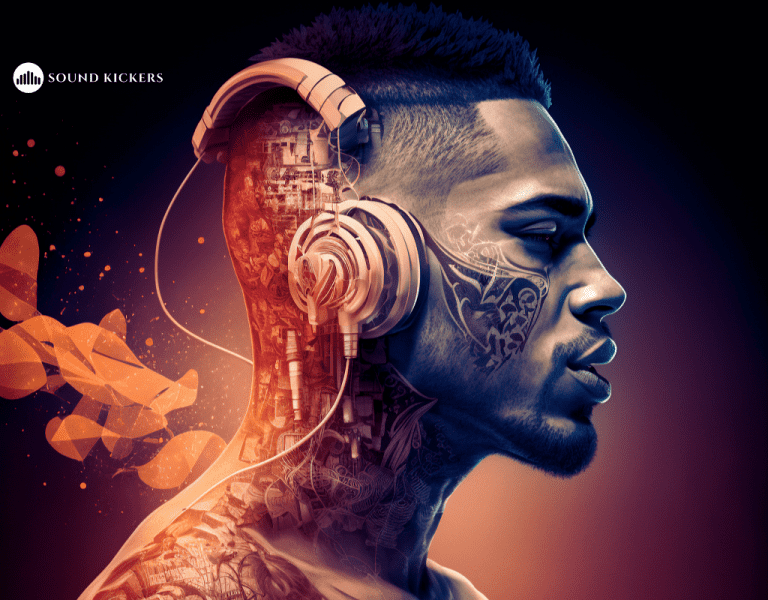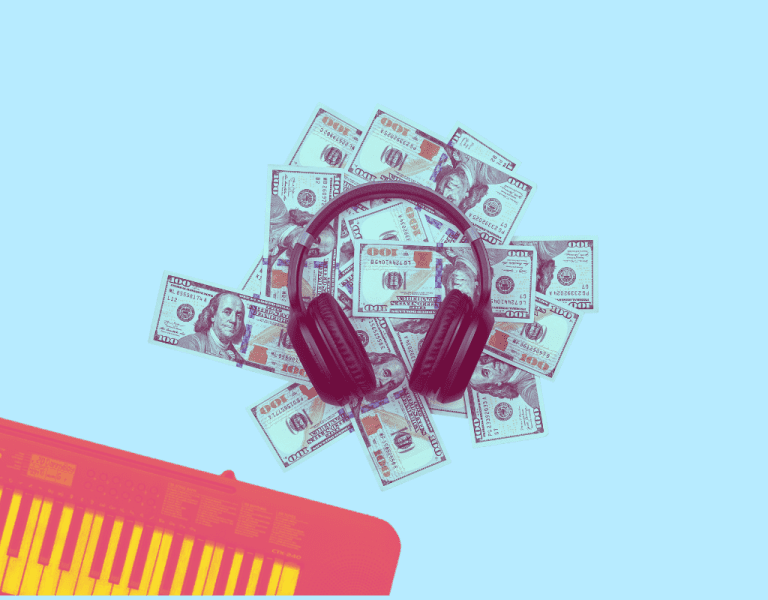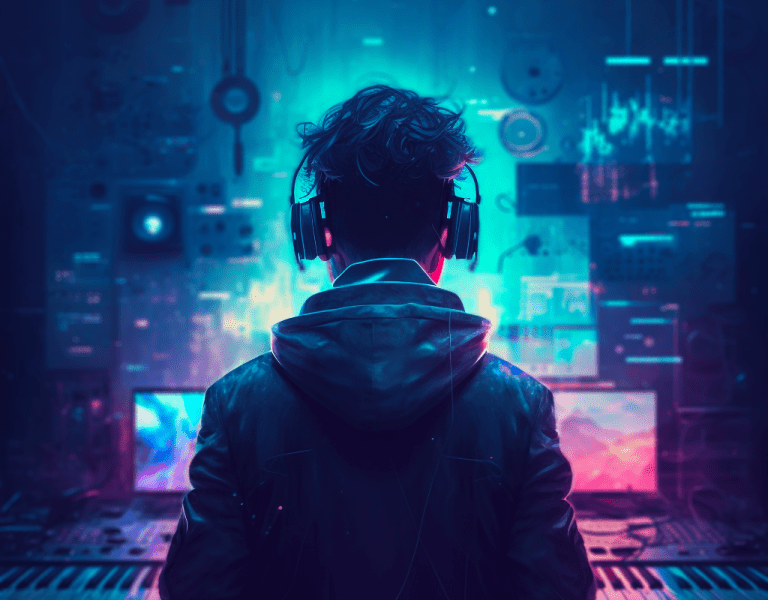AI Music For Sleep: Relaxing, Personalized Tunes
In the hectic world we live in, a good night’s sleep can sometimes seem like a far-fetched dream. Fret not! AI music for sleep is here to help you drift off with ease. But how can technology and artificial intelligence lead the way to sweet slumber?
Did you know some music companies are using AI to create personalized soundscapes to aid in relaxation and sleep? These nifty innovations craft soothing tunes designed specifically for your brain, revolutionizing the way you catch those much-needed Z’s. Can you imagine the difference this could make in your nightly routine?
Key Takeaways
- AI music for sleep helps you relax and drift off easier.
- Innovative soundscapes are personalized and crafted for your brain.
- Adopting AI music could revolutionize your sleep experience.
Introduction to AI-Generated Music
Have you ever wondered how artificial intelligence (AI) could impact the world of music? As technology advances, the possibilities become endless. In this section, we’ll dive into the fascinating world of AI-generated music and its applications for sleep enhancement.
AI-generated music is a relatively new phenomenon, but it has been gaining popularity in recent years as AI systems become more sophisticated. By utilizing algorithms and machine learning techniques, these systems can create unique and compelling musical compositions without human input. The result is a wide variety of music tailor-made for specific purposes, including sleep enhancement.
There are several categories of AI-generated music with specific applications:
- Background music for relaxation, meditation, and focus
- Music specifically designed for sleep and stress reduction
- Personalized music based on a user’s preferences, emotions, and habits
One excellent application of AI-generated music is its potential to help improve sleep quality. Companies like Sleep Cycle are creating tracks specifically designed to induce relaxation and promote a restful night of sleep. These tracks are crafted using AI algorithms, ensuring an ever-evolving palette of sounds for our ears to enjoy.
| Category | Application |
|---|---|
| Relaxation, meditation, and focus | Background music for work, study, and mindfulness |
| Sleep and stress reduction | Soothing sounds for bedtime and relaxation |
| Personalized music | Customized tracks based on preferences and moods |
Can you imagine drifting off to sleep with an AI-powered track designed just for you? It’s now possible, thanks to advancements in this technology. Not only can this help you unwind after a long day, but it can substantially improve your overall sleep hygiene.
Personal experience plays a big role in the effectiveness of AI-generated music for sleep. You might find that some tracks work better for you than others, and it’s important to explore different options to find your perfect match.
Remember, finding the right AI-generated music for your sleep routine can be a gratifying and life-changing experience. So take charge of your sleep and allow yourself to explore the captivating world of AI-generated music. Happy dreaming!
Understanding the Science of Sleep and Music
Do you find yourself tossing and turning at night, struggling to catch some much-needed sleep? As it turns out, music may be the key to a better night’s sleep. Let’s dive into the science behind how music helps you sleep.
Listening to music at bedtime has been linked to improved sleep quality. Research suggests this is because music has the power to lower stress levels and boost relaxation by decreasing levels of cortisol, a stress hormone, and triggering the release of dopamine, a hormone associated with pleasure 1. So, the next time you’re having trouble falling asleep, consider adding some calming tunes to your bedtime routine.
But how exactly does music impact our brain activity when it comes to sleep? The answer can be found in the interactions between perception and action systems. When we listen to music, our brains engage in a complex process involving everything from emotional responses to memories. This engagement might be what helps us sleep better, as it promotes relaxation and distraction 2.
Current scientific findings support the use of music as an effective sleep aid, highlighting its potential to improve overall sleep quality. Examples of music known to aid sleep include AI-powered sleep music 3 and patient-selected music programs designed by music therapists 4. These sleep-inducing tunes can be tailored to your preferences, incorporating varying tempo, meter, and intensity based on your individual needs.
So, is it time for you to give music a chance in your quest for better sleep? As each person responds differently to music, the key lies in finding the type of music that best suits your needs, promoting both relaxation and enjoyable listening experiences. Remember, combining science and the power of music may very well be your pathway to dreaming bliss.
Footnotes
How AI Composes Music for Sleep
Imagine lying in bed, struggling to fall asleep, when the soothing sound of AI-generated music fills the room. But how does AI compose these calming tunes? Let’s dive in.
AI algorithms analyze a vast amount of data, such as the tempo, pitch, and rhythm of different musical pieces known for their relaxing effects. By identifying patterns in this data, the AI can create entirely new, unique compositions tailored for sleep-inducing purposes.
Personalization is a key factor in the effectiveness of AI-generated sleep music. By taking into account your specific sleep preferences, AI can customize the music to provide an optimal calming environment. This means that over time, the AI continually learns and adjusts its algorithms to produce the most tranquil and pleasant tunes for your unique listening experience.
Can AI really create something as personal as sleep music? You might wonder how an algorithm is capable of generating the comforting, intimate sounds we associate with drifting off to a peaceful slumber. The answer lies in the AI’s ability to recognize and mimic the patterns found in relaxing compositions. The result is a bespoke musical experience that lulls you into a restful state.
Now you know how AI composes music for sleep: by analyzing vast data sets, personalizing compositions, and constantly learning and adjusting to your needs. The next time you tuck into bed and let AI-generated tunes wash over you, know that you’re experiencing the cutting-edge intersection of technology and music, designed to provide the perfect soundscape for your slumbers.
Comparing AI-Generated Sleep Music to Traditional Sleep Music
Sleep is essential for maintaining our physical and mental health, and having trouble falling or staying asleep can be frustrating. You might have tried various methods, including listening to traditional sleep music. However, AI-generated sleep music has gained popularity recently as a possible solution for your sleep troubles. Let’s compare the two to see how they relate.
AI-generated sleep music is created using artificial intelligence algorithms that analyze different musical patterns and characteristics commonly associated with relaxation. This kind of music is tailored specifically to the listener’s preferences, delivering unique and personalized compositions. You can find some examples of AI-generated sleep music in the Sleep Cycle app, which uses Mubert’s AI algorithms for creating soothing soundscapes.
On the other hand, traditional sleep music includes classical compositions, ambient tracks, and nature sounds that have been known for their calming effects. Examples of traditional sleep music are lullabies like “Brahms’ Lullaby” and “Hush Little Baby” – tunes that have been passed down through generations as natural sleep aids.
When it comes to evaluating effectiveness, research on AI-generated music and traditional music for sleep is an ongoing process. However, some studies have started to explore the potential benefits of AI-generated music for sleep. For instance, the Lullabyte project is investigating the influence of music on the sleep process, combining neuroscience, AI, and sleep medicine to develop “super lullaby” soundscapes.
Remember the last time you listened to a music track that resonated with you? Our listening experiences and personal preferences play a significant role in how well a particular kind of music helps with sleep. Some individuals may prefer AI-generated sleep music, as it offers a more personalized experience. Others might stick to traditional sleep music, which has history, familiarity, and cultural ties.
Are there similarities between AI-generated and traditional sleep music? Yes! A study using Spotify’s database found that the musical characteristics of sleep and study playlists are more similar than those of general music. This implies that certain elements of AI-generated sleep music might resemble traditional sleep music. The key, however, lies in finding the perfect balance that works for you.
In conclusion, exploring AI-generated sleep music and traditional sleep music can help you find the most effective solution for your sleep troubles. It’s essential to keep an open mind and remember that personal preferences play a vital role in selecting the right kind of music for a good night’s sleep. So, why not give both a try and see which one works best for you?
The Future of AI-Generated Music for Sleep
Imagine this: You’ve had a long day, and you’re ready to relax and drift off to sleep. But sometimes, finding the perfect soundtrack to your slumber can be a challenge. That’s where AI-generated music for sleep comes in and plays a crucial role in enhancing your sleep experience.
In recent years, the use of AI-generated music for sleep has been on the rise, with companies like Endel creating sleep-focused playlists on major streaming platforms. As technology advances and AI algorithms become more sophisticated, the future of AI-generated music for sleep is all set to undergo significant developments. So, what can you expect from this promising field?
Current trends in AI-generated music for sleep
AI-created sleep music has gained traction in several ways recently:
- AI algorithms have generated immersive, ambient soundscapes that help lull you to sleep.
- Companies like Mubert offer custom sleep music tracks tailored to your personal preferences.
- Platforms like Amazon Music have integrated AI-created sleep playlists, providing users with seamless access.
As you can see, AI-generated sleep music is becoming more readily available to you, suggesting a promising future for this technology.
Anticipated developments and advancements
In the coming years, you may see a variety of advancements in AI-generated music for sleep:
- More personalized and responsive soundscapes are adapting to your specific sleep patterns and needs.
- Integration with smart home devices, adjusting the sleep music based on real-time data about your environment.
- A greater understanding of the relationship between specific sound frequencies and their impact on sleep allows for AI-generated music to be more precisely calibrated for maximum effectiveness.
These potential advancements could make AI-generated sleep music an even more powerful tool for improving sleep wellness.
The impact on sleep wellness and general health
Embracing AI-generated music for sleep could have far-reaching implications for enhancing sleep wellness and general health. Improved sleep music could lead to:
- Better overall sleep quality, helping you feel more rested and rejuvenated
- Reduced sleep latency, allowing you to drift off to sleep more quickly
- Enhanced relaxation and stress relief during bedtime, contributing to improved mental health
- Better cognitive function, memory retention, and mood due to improved sleep
Are you ready to embrace the future of AI-generated sleep music? As technology continues to advance, you can look forward to even more effective and personalized sleep soundtracks to elevate your bedtime experience.
Conclusion: AI Music For Sleep
In the end, you may wonder: can AI-generated music really help improve your sleep? Based on recent studies, it seems that music-based interventions show promise in enhancing sleep quality when used for three weeks or longer. However, like with any sleep aid, results can vary from person to person.
Think about how a lullaby could gently lead you into slumber. You might find that AI-generated music has a similar calming effect on you. If not, don’t worry; you’re not alone! Just remember that quality sleep is essential to your overall well-being. The idea behind AI music for sleep is to help you find the most effective, personalized method for rewinding after a long day and achieving a restful night.
So, why not give it a try? Tune into some AI-created melodies tonight and see if it makes a difference for you. Good luck, and here’s to better sleep!
Frequently Asked Questions
How does AI generate sleep music?
AI generates sleep music by using algorithms that analyze and create patterns based on existing music and soundscapes. These algorithms create new compositions designed to have specific effects on the listener, such as promoting relaxation and sleep. The music is generated in real-time and can be customized to the user’s preferences and needs.
What are the benefits of using AI sleep sounds?
AI sleep sounds offer several benefits, such as customizability, uniqueness, and real-time generation. This means that users can enjoy a personalized and ever-changing soundscape tailored to their individual needs. Moreover, AI-generated sleep music has been designed specifically for relaxation and sleep, which may help users fall asleep faster and enjoy a more restful sleep.
Which apps offer AI-generated deep sleep music?
There are several apps available that offer AI-generated deep sleep music. One example is Mubert, which was featured in Sleep Cycle. Other popular options include Endel and Brain.fm, both known for their AI-generated soundscapes that promote focus, relaxation, and sleep.
How do AI soundscapes help with sleep?
AI soundscapes are designed to blend into the background while subtly influencing the brain’s activity, promoting relaxation and sleep. Through targeted sound frequencies and rhythmic patterns, AI-generated sleep music helps calm the mind while blocking out disruptive background noises such as traffic, snoring, or ambient chatter.
Can I create my own AI-assisted sleep sounds?
While creating your own AI-assisted sleep sounds may require programming knowledge and access to specialized software, some music platforms and apps allow users to customize their AI-generated sleep soundscapes. These platforms generally offer a range of customizable elements, such as tempo, intensity, and duration, to create a personalized listening experience.
What makes Endel different from other sleep music apps?
Endel stands out because of its unique approach to AI-generated music. The app considers various personal factors, such as circadian rhythms, heart rate, and weather, to create adaptive sound environments that cater to the user’s needs. This means that the in-app soundscapes change in real-time, offering a truly personalized and dynamic experience for users looking to improve their sleep quality.

